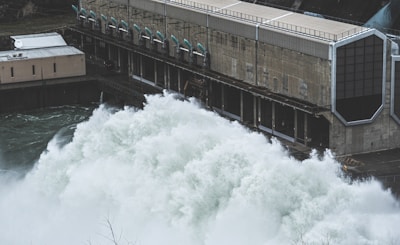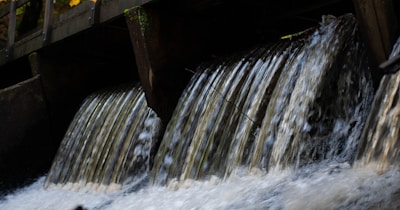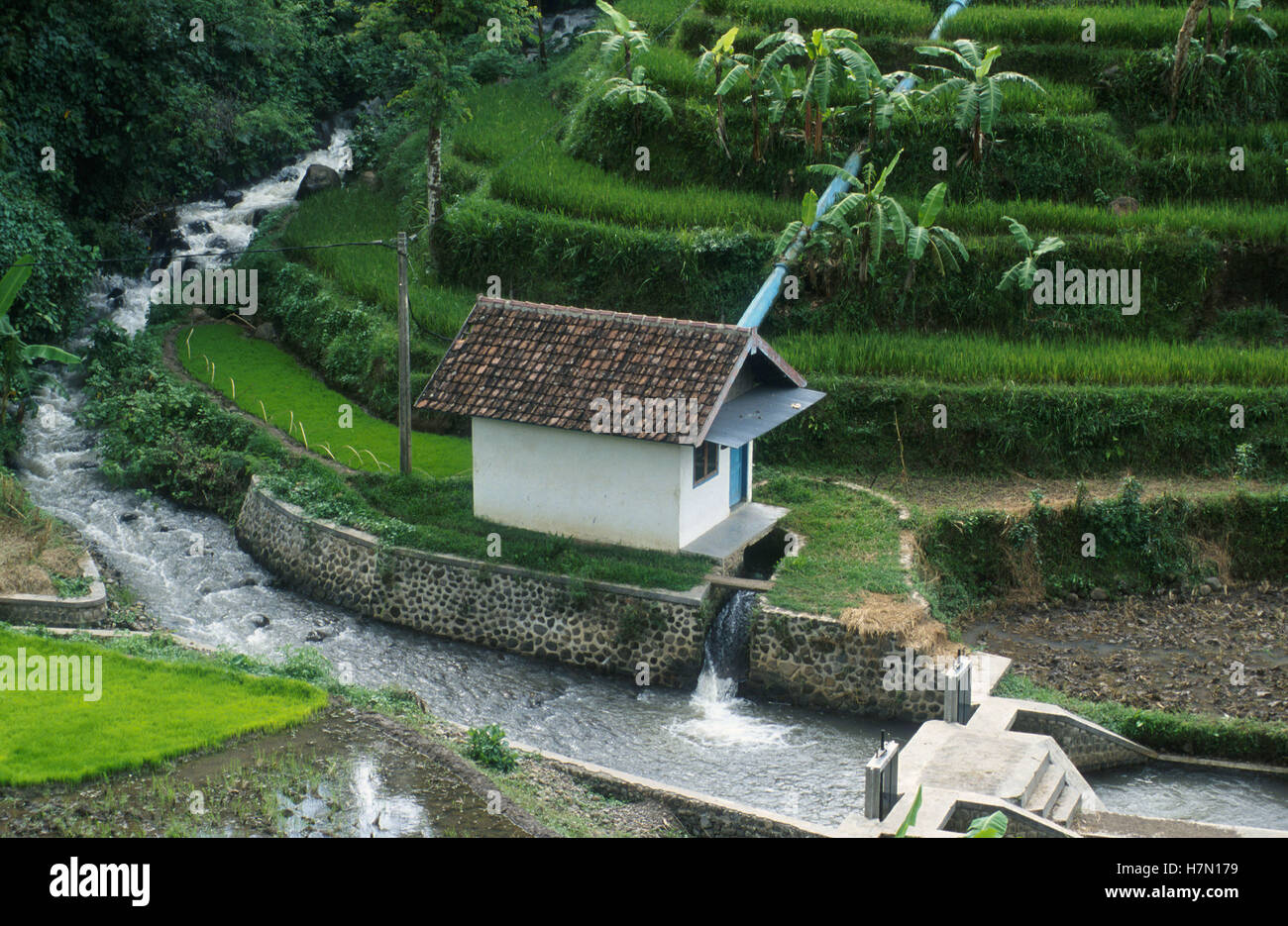Imagine boosting your hydropower plant’s output without the need for costly upgrades or expansions. Sounds intriguing, right?
You might be surprised to learn that small, strategic changes can lead to significant improvements in efficiency. Whether you’re an engineer, a plant manager, or just someone passionate about renewable energy, understanding these tips could be a game-changer for you.
This article will reveal practical, easy-to-implement strategies that can help you maximize the power you generate. By the end, you’ll have actionable insights to make your hydropower generation more efficient, sustainable, and cost-effective. Don’t miss out on the opportunity to enhance your plant’s performance and contribute to a greener future!
Optimizing Turbine Design
Choosing the best turbine is very important. The turbine must fit the water flow. Different flows need different turbines. Small rivers need small turbines. Big rivers need big turbines. This match helps in saving energy. It makes the system work better. A good match avoids wasting energy.
The blade angle matters a lot. It affects the turbine’s speed. Proper angle gives better energy. Adjusting the angle is easy. It helps in getting more power. The right angle means more efficiency. It saves money and resources.
Enhancing Water Flow Management
Flow ratesmust be carefully controlled. It affects power generation. More water means more energy. Too much water can be bad. It may cause damage. Use adjustable gatesfor control. These gates help manage water levels. They help maintain steady flow. Steady flow is important. It helps machines work better. It prevents wasted energy.
Turbulence can reduce efficiency. It causes water to move wildly. Steady flow is better. Use smoother channelsto guide water. Avoid sharp turns. Sharp turns increase turbulence. Smoother paths are key. They help water move calmly. Calm water means better power output. Less turbulence saves energy. It makes machines run smoothly.
Regular Maintenance Practices
Regular checks help find problems early. Look for wear and tear on parts. Fix small issues quickly to avoid bigger problems. Inspect turbines and generators often. Check for corrosion and leaks. Keep records of every inspection. Use these records to plan future checks. Keep your hydropower plant running smoothly.
Upgrade old parts to improve efficiency. New parts can save energy. Use modern technology for better results. Replace worn-out parts with high-quality materials. Keep up with the latest advancements in technology. Upgrading can help cut maintenance costs. It also increases the plant’s lifespan.
Utilizing Advanced Technology
Smart monitoring systems help in watching power plants. They watch the machines and the water flow. This helps in finding problems fast. When problems are found early, they are fixed quickly. This saves time and money. These systems also help in keeping the power plant safe. With smart systems, people can make better choices.
Automated adjustments make machines work better. They change machine settings on their own. This helps machines to be more efficient. Machines use less energy. Less energy means less cost. Automated systems also help in keeping machines from breaking. They check the machines all the time. If a problem starts, they fix it right away. This keeps the power plant running smoothly.
Environmental Considerations
Sustainable practicesin hydropower help the earth. It keeps rivers and lakes healthy. Using eco-friendly methodssaves wildlife. People and animals both win. We can make power without harm. This is good for today and tomorrow. Simple changes make big differences. Plant trees near water. Trees clean the air and water. They also give homes to animals. Clean energy is smart energy. Everyone can help.
Minimizing impact is key in hydropower. Less harm, more gain. By using better designs, fish can swim freely. Water can flow with ease. This helps nature stay strong. We should all care about these things. Smart planning makes a difference. It helps keep nature safe. It’s important to think about our actions. What we do matters a lot.
Training And Skill Development
Operators must learn how to manage machines effectively. They should know how to respond to emergencies. Training helps them to work safely. Good education increases efficiency. It also reduces mistakes. Operators should attend regular classes. They need to update their skills often. Learning helps in problem-solving. It builds confidence and improves performance.
Workshops offer hands-on experience. They teach operators new techniques. Workshops cover latest trends in hydropower. They bring experts to share knowledge. Operators learn to use new tools. Workshops help in team building. They encourage collaboration among workers. Operators gain practical skills. These skills improve energy output. Regular workshops keep operators informed and ready.
Frequently Asked Questions
How Can Hydropower Efficiency Be Improved?
Improving hydropower efficiency involves optimizing turbine design, maintaining equipment, and implementing advanced monitoring systems. Regular maintenance ensures the system operates at peak performance. Innovative designs like variable speed turbines can enhance energy conversion. Monitoring technologies help detect inefficiencies early, allowing prompt corrective actions.
What Factors Affect Hydropower Efficiency?
Hydropower efficiency is influenced by water flow rate, turbine design, and system maintenance. Consistent water flow ensures continuous power generation. Well-designed turbines maximize energy conversion from water movement. Regular maintenance prevents mechanical failures, ensuring optimal operation. Environmental factors like sediment build-up can also impact efficiency.
Are Newer Turbines More Efficient?
Yes, newer turbines are generally more efficient due to advanced designs and materials. Modern turbines offer better energy conversion rates. Innovations like variable speed turbines adapt to changing water flows. Improved materials reduce wear and tear, extending turbine lifespan and maintaining efficiency over time.
How Does Sediment Affect Efficiency?
Sediment build-up reduces hydropower efficiency by obstructing water flow and damaging equipment. It causes wear on turbine blades, reducing energy conversion. Regular cleaning and sediment management strategies ensure optimal water flow. Effective sediment control prolongs equipment life and maintains high efficiency levels.
Conclusion
Improving hydropower efficiency boosts energy production and reduces costs. Simple steps can make a big difference. Regular maintenance ensures equipment runs smoothly. Monitoring water flow helps optimize performance. Staff training enhances operational skills. Upgrading technology improves power output. Environmental considerations protect natural resources.
Efficient practices benefit both the planet and your wallet. Sustainable energy is important for the future. By following these tips, hydropower plants can achieve better results. Investing in efficiency leads to long-term success. Hydropower remains a vital energy source. Embrace these strategies for a greener tomorrow.
Read More:
- Best Home Water Filtration Units: Top Picks for Clean Water
- Diy Hydroponic Grow System Guide: Cultivate Success
- Mini Hydro System Feasibility Study: Unlocking Eco Solutions
- Chemical Dosing Pump Pricing Guide: Maximize Your Investment
- Diaphragm Pump Cost Comparison: Affordable Options Unveiled
- Hydroelectric Dam Maintenance Cost Analysis: Cutting Costs
- Commercial Water Filtration System Cost: Save Money Today
- Diaphragm Pump Maintenance Tips: Ensure Peak Performance




